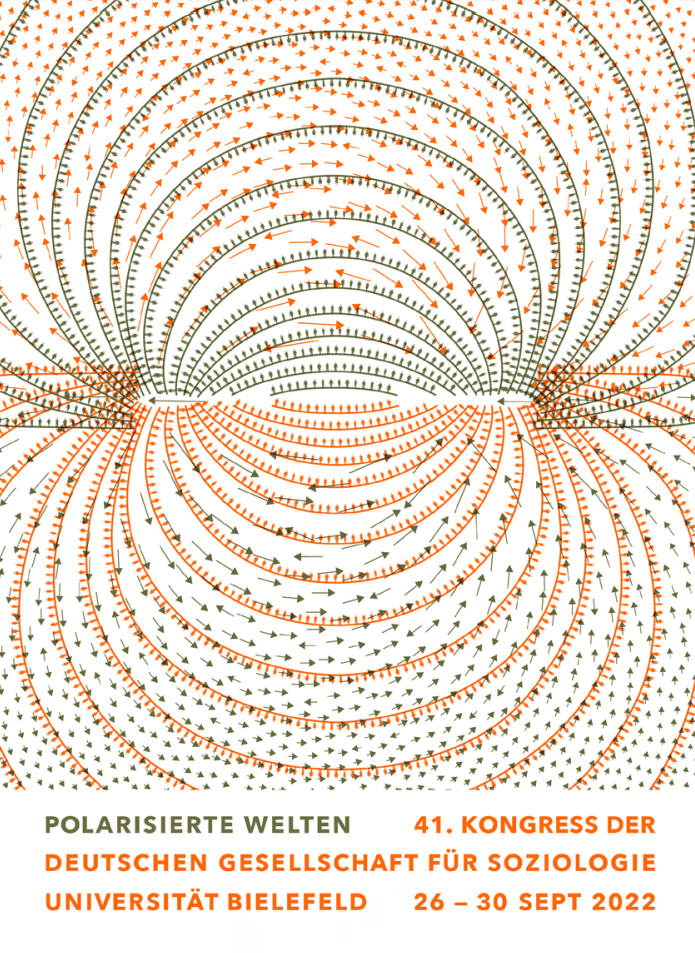Gobales Monitoring von SDG 4 „Hochwertige Inklusive Bildung” mittels Daten zu Behinderung
DOI:
https://doi.org/10.21241/ssoar.99176Schlagwörter:
SDG 4, Bildung, Behinderung, Beeinträchtigung, UN-BRK, Washington Group Questions, Menschenrechte, Menschenrechtsmonitoring, InklusionAbstract
Der Beitrag analysiert die komplexe Beziehung zwischen dem Ziel 4 der Agenda 2030 für Nachhaltige Entwicklung (Sustainable Development Goals, SDGs) – hochwertige inklusive Bildung für alle – und der Generierung von Daten zur Teilhabe von Menschen mit Behinderungen zum Zwecke des Monitorings. Er untersucht, inwiefern ein menschenrechtlich fundiertes, soziales Modell von Behinderung – konstitutiv für das Menschenrechtsmonitoring seit Inkrafttreten der UN-Behindertenrechtskonvention (UN BRK) vor 15 Jahren – zur Anwendung kommt. Gemäß dieses Modells wird Behinderung als eine Wechselwirkung zwischen Beeinträchtigung und Barrieren verstanden, welche die gleichberechtigte Teilhabe an der Gesellschaft behindert (vgl. Art. 1 UN-BRK). Das in der internationalen Behindertenrechtsbewegung entwickelte soziale Modell beschreibt Behinderung also in erster Linie als ein gesellschaftliches Phänomen sozialer Exklusion und Diskriminierung von Menschen mit Beeinträchtigungen, nicht als ein medizinisches Problem (Boger et al. 2022).
Im Hinblick auf die Frage, wie ein soziales Modell von Behinderung im Menschenrechtsmonitoring angewandt wird, analysieren wir die sogenannten Washington Group Questions (WGQs), dem von den VN entwickelten Fragenset zur global vergleichbaren Erhebung von Daten zu Behinderung (Mont 2019), das weltweit zum Einsatz kommt. Auf der Grundlage unserer Analyseergebnisse werden wir argumentieren, dass die WGQs noch kein soziales Modell von Behinderung abbilden, stattdessen aber ein soziales Modell von Beeinträchtigung einführen (siehe Biermann und Pfahl 2021).
Nur wenige Forschungsarbeiten haben bisher explizit Behinderungsfragen innerhalb des SDG-Kontextes analysiert (siehe z.B. Madans, Loeb und Altman 2011, Alghaib, Thivillier und Cook 2019); daher greifen wir auf Literatur zurück, die die Beziehung zwischen SDGs, Menschenrechten und der Messung von Behinderung diskutiert. Vor diesem Hintergrund stützen wir uns auf Erkenntnisse aus den Disability Studies (Degener 2017) und der Wissenssoziologie (Rottenburg und Merry 2013). Uns interessiert, wie das Wissen um Behinderung die Messung von Behinderung beeinflusst und ein Behinderungsverständnis hervorbringt, das schließlich das weltweite Monitoring von Menschenrechten anleitet und legitimiert.
Literaturhinweise
Alghaib, Ola Abu, Pauline Thivillier und Gemma Cook. 2019. Disability Data Collection: Emerging Opportunities from Recent Global Initiatives. Behinderung und internationale Entwicklung 30(2):4–10.
Biermann, Julia, und Lisa Pfahl. 2021. A Global Monitoring Practice in the Making: Disability Measurement for UN Sustainable Development Goal 4 on Inclusive Education. Österreichische Zeitschrift für
Geschichtswissenschaften 31(3):192–213. DOI: 10.25365/oezg-2020-31-3-11
Boger, Mai-Anh, Julia Biermann, David Brehme, Swantje Köbsell, Rebecca Maskos und Lisa Pfahl. 2022. Systematische, historische und interdisziplinäre Zugänge zum Sozialen Modell von Behinderung. Editorial. Zeitschrift für Disability Studies (1):1–4. https://doi.org/10.15203/ZDS_2022_1.01 (Zugegriffen: 25. Januar 2023).
BMZ (Bundesministerium für wirtschaftliche Zusammenarbeit und Entwicklung). 2023. Agenda 2030 – SDG4. https://www.bmz.de/de/agenda-2030/sdg-4 (Zugegriffen: 25. Januar 2023).
Degener, Theresia. 2017. A New Human Rights Model of Disability. In The United Nations Convention on the Rights of Persons with Disabilities: A Commentary, Hrsg. Valentina Della Fina, Rachele Cera und Giuseppe Palmisano, 41–59. Wiesbaden: Springer.
Lockwood, Elizabeth, und Orsolya Bartha. 2019. Including the Furthest Left Behind: Disability Data and the 2030 Agenda for Sustainable Development. Behinderung und internationale Entwicklung 30(2):23–27.
Madans, Jane H., Mitchell E. Loeb und Barbara M. Altman 2011. Measuring Disability and Monitoring the UN Convention on the Rights of Persons with Disabilities: The work of the Washington Group on Disability Statistics. BioMedCentral (BMC) Public Health 11. DOI:10.1186/1471-2458-11-S4-S4
Mont, Daniel. 2019. How are the Washington Group Questions consistent with the Social Model of Disability? https://www.washingtongroup-disability.com/wg-blog/how-are-the-washington-group-questions-consistent-with-the-social-model-of-disability-65/ (Zugegriffen: 15. Januar 2023).
Rottenburg, Richard, und Sally Engle Merry. 2013. A World of Indicators: The Making of Governmental Knowledge through Quantification. In The World of Indicators, Hrsg. Richard Rottenburg, Sally E. Merry, Sung-Joon Park und Johanna Mugler, 1–33. Cambridge: Cambridge University Press. DOI:10.1017/CBO9781316091265.001
Schneider, Marguerite. 2016. Cross-National Issues in Disability Data Collection. In: International Measurement of Disability, Purpose Method and Application, Hrsg. Barbara Altmann, 15–28. Basel: Springer International Publishing.
UN (United Nations). 2016. Leaving No One Behind: The Imperative of Inclusive Development. Report on the World Social Situation. https://www.un.org/esa/socdev/rwss/2016/full-report.pdf (Zugegriffen: 15. Januar 2023).
UN (United Nations). 2018. Realization of the Sustainable Development Goals by, for and with persons with disabilities. UN Flagship Report on Disability and Development. https://social.un.org/publications/UN-Flagship-Report-Disability-Final.pdf (Zugegriffen: 28. Januar 2023).
UN (United Nations). 2020. Sustainable Development Goal 4 – Targets and Indicators. https://sustainabledevelop-ment.un.org/sdg4 (Zugegriffen: 15. Januar 2023).
UN (United Nations). 2023. Universal Values - Leave No One Behind. https://unsdg.un.org/2030-agenda/universal-values/leave-no-one-behind (Zugegriffen: 25. Januar 2023).
UNESCO Institute for Statistics, 2016. Laying the Foundation to Measure Sustainable Development Goal 4. http://uis.unesco.org/sites/default/files/documents/laying-the-foundation-to-measure-sdg4-sustainable-development-data-digest-2016-en.pdf (Zugegriffen: 25. Januar 2023).
Washington Group. 2017. The Washington Group Short Set on Functioning: Question Specifications 2. https://www.washingtongroup-disability.com/fileadmin/uploads/wg/Documents/Events/17/WG-Document-4-The-Washington-Group-Short-Set-on-Functioning-Question-Specifications.pdf (Zugegriffen: 15. Januar 2023).
Washington Group, 2018. Disability Measurement and Monitoring using the Washington Group Disability Questions. https://assets.publishing.service.gov.uk/government/uploads/system/uploads/attachment_data/file/732254/Disability-Measurement-Monitoring-Washington-Group-_Disability-Questions.pdf (Zugegriffen: 25. Januar 2023).
Washington Group. 2022. The Washington Group Short Set of Questions on Disability, https://www.washingtongroup-disability.com/fileadmin/uploads/wg/Washington_Group_Questionnaire__1_-_WG_Short_Set_on_Functioning__October_2022_.pdf (Zugegriffen: 25. Januar 2023).
WHO. 2001. International Classification of Functioning, Disability and Health (ICF), Geneva. https://apps.who.int/iris/bitstream/handle/10665/42407/9241545429.pdf;jsessionid=725A1D5F4247CB437DF216C5D5390174?sequence=1 (Zugegriffen: 15. Januar 2023).
WHO World Health Organization, und World Bank. 2011. World Report on Disability, Geneva. https://www.who.int/publications/i/item/9789241564182 (Zugegriffen: 25. Januar 2023).
Downloads
Veröffentlicht
Ausgabe
Rubrik
Lizenz
Copyright (c) 2023 Polarisierte Welten. Verhandlungen des 41. Kongresses der Deutschen Gesellschaft für Soziologie 2022

Dieses Werk steht unter der Lizenz Creative Commons Namensnennung - Nicht-kommerziell 4.0 International.
Beiträge im Verhandlungsband des 41. Kongresses der Deutschen Gesellschaft für Soziologie in Bielefeld werden unter der Creative Commons Lizenz "Namensnennung-Nicht kommerziell 4.0 International (CC BY-NC 4.0)" veröffentlicht.
Dritte dürfen die Beiträge:
-
Teilen: in jedwedem Format oder Medium vervielfältigen und weiterverbreiten
-
Bearbeiten: remixen, verändern und darauf aufbauen
unter folgenden Bedingungen:
-
Namensnennung: Dritte müssen angemessene Urheber- und Rechteangaben machen, einen Link zur Lizenz beifügen und angeben, ob Änderungen vorgenommen wurden
-
Nicht kommerziell: Dritte dürfen das Material nicht für kommerzielle Zwecke nutzen





